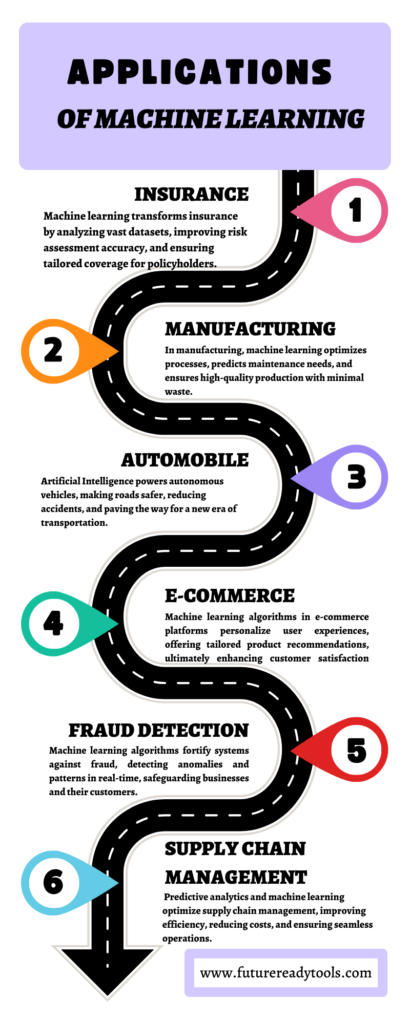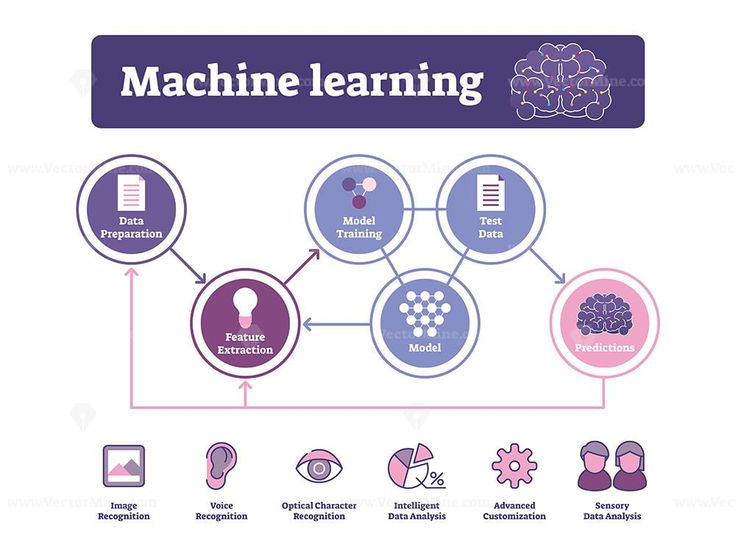- Introduction:
- Defining the Role:
- Key Responsibilities of a Machine Learning Engineer
- Educational Background for a Machine Learning Engineer
- Skills required to become a Machine Learning Engineer
- 2. Proficiency in Programming Languages:
- 5. Ethical Considerations in ML:
- Challenges and Opportunities for a Machine Learning Engineer
- Practical approach to become Machine Learning Engineer
- Exploring Real-World Applications Powered by Machine Learning
- Future of Machine Learning Engineers
- Exploring India’s Pioneering Role in Machine Learning
- Job Outlook for Machine Learning Engineers in India
- Salary Trends for Machine Learning Engineers in India
- Explore the Best Machine Learning Internship Paths for Students
- Conclusion:
- Frequently Asked Questions:
Introduction:
Machine Learning Engineers are at the forefront of our advancing world of technology. They are the visionaries behind a future where artificial intelligence seamlessly becomes part of our lives. With the rising demand for systems, the role of a Machine Learning Engineer has become vital. They have a significant impact on industries transforming the way we engage with technology.
Defining the Role:
A Machine Learning Engineer is a professional who possesses programming skills, mathematical expertise, and domain-specific knowledge. These engineers can design, develop, and implement machine learning models that enable systems to learn from data and make decisions without relying on programming instructions.
Key Responsibilities of a Machine Learning Engineer
Data Exploration and Preparation:
- Data exploration and preparation is one of the initial phases in which Machine Learning Engineers delve into vast datasets, understanding patterns, and extracting meaningful insights. They clean and preprocess data to ensure that it is ready for machine learning model training.
Model Development:
- They craft the core of intelligent systems in the model development phase. Machine Learning Engineers create and adjust models using different algorithms, ranging from traditional statistical methods to advanced deep learning techniques, based on the specific problem they are working on.
Algorithm Optimization:
- Optimizing algorithms is crucial in the field of Machine Learning Engineering. Engineers continually refine algorithms, striving for enhanced performance, reduced computational costs, and improved accuracy.
Deployment and Integration:
- The process of taking machine learning models from development to deployment is a crucial step for machine learning engineers. It involves integrating the solutions into existing systems or creating new applications, ensuring that the AI interacts seamlessly with real-world scenarios.
Continuous Monitoring and Improvement:
- Continuous monitoring and improvement is a critical responsibility of Machine Learning Engineers. Even after the deployment of the machine learning models, these engineers constantly analyze the performance of the models and make necessary adjustments to ensure that the models adapt to the evolving data patterns. This iterative process is essential to ensure the sustainability and relevance of machine learning solutions in the long term. By continuously monitoring and fine-tuning the models, Machine Learning Engineers can ensure that these models remain effective in solving real-world problems.
Educational Background for a Machine Learning Engineer
To become a Machine Learning Engineer, a specific educational background is crucial. Here’s a detailed breakdown:
1. Foundational Education:
- High School (10+2):
- Completed 10+2 in Chemistry, Physics, Biology, and Mathematics from a recognized board.
- Bachelor’s Degree Programs:
- Choose from various bachelor’s degree programs related to machine learning and artificial intelligence. Some options include:
- B.Sc in AI and Machine Learning
- B.Tech in Computer Science
- BE in Information Technology
- B.Tech in Artificial Intelligence
- B.Sc in Computer Science Engineering
- BE in Machine Learning and Data Engineering
- Ensure the program covers fundamental concepts in mathematics, statistics, and programming.
- Master’s Degree Programs
- Pursuing a master’s degree can enhance job prospects and provide deeper insights into the field. Consider programs such as
- M.Sc in AI and Machine Learning
- M.Tech in Computer Science
- ME in Information Technology
- M.Tech in Artificial Intelligence
- M.Sc in Computer Science Engineering
- ME in Machine Learning and Data Engineering
- Master’s programs often involve advanced coursework, research, and practical applications.
- Skill Development:
- Throughout your education, focus on developing key skills such as programming languages (Python, R), machine learning frameworks (TensorFlow, PyTorch), data analysis, and problem-solving.
- Practical Experience:
- Engage in real-world projects, internships, or co-op programs to gain hands-on experience. Practical application of machine learning concepts is invaluable.
- Continuous Learning:
- Stay updated on the latest advancements in machine learning and artificial intelligence. Attend workshops, webinars, and conferences to keep your skills current.
Becoming a Machine Learning Engineer requires a well-structured educational journey, beginning with a solid foundation in high school, followed by a relevant bachelor’s degree. Pursuing a master’s degree may be an option for advanced positions or research. However, continuous skill development and practical experience are critical factors that contribute to a successful educational background for a Machine Learning Engineer.
Skills required to become a Machine Learning Engineer
1. Mastering the Mathematical Foundations of Machine Learning:
To become proficient in machine learning, you need to have a clear understanding of the mathematical concepts underlying ML algorithms. This means that you should be able to apply your knowledge to implement efficient and effective code for practical applications.
2. Proficiency in Programming Languages:
Programming languages such as Python, R, and Java are essential for developing ML models. Therefore, to become a successful machine learning engineer, you need to demonstrate expertise in these programming languages.
3. Comprehensive Knowledge of ML Algorithms:
Machine learning algorithms come in different forms, including supervised learning, unsupervised learning, and reinforcement learning techniques. Therefore, to be proficient in machine learning, you need to possess familiarity with a diverse range of ML algorithms.
4. Data Collection and Analysis Skills:
Collecting, cleaning, and analyzing data is a crucial part of machine learning. Therefore, to become proficient in machine learning, you need to exhibit the ability to collect, clean, and analyze data, preparing it for effective training and deployment of ML models.
5. Ethical Considerations in ML:
Stay informed and conscious of the ethical implications of ML work, contributing to responsible AI practices as the field evolves.
6.Data Science Proficiency:
Showcase expertise in data science, encompassing computer programming in R and Python, statistical analysis, model optimization, validation, and applications in ML frameworks.
7. Software Engineering Acumen:
Demonstrate knowledge of software engineering, encompassing proficiency in secondary programming languages (e.g., Java, C++, or JavaScript), cloud services, distributed computing, system design, and software architecture.
8. Data Modeling and Evaluation Skills:
Exhibit skills in data modeling, including a deep understanding of data structures and the ability to discern patterns crucial for effective ML implementation.
9.Mastery of Neural Networks:
Gain expertise in neural networks, understanding the intricate layers involved in transforming input data into valuable output through hidden layers.
10. Natural Language Processing (NLP) Proficiency:
The mastery of Natural Language Processing (NLP) is an essential component in teaching computers the intricate complexities of human language, which is a fundamental skill required in the field of Machine Learning (ML) engineering. Demonstrating a robust grasp of NLP is an indication of a profound understanding of its underlying principles and techniques, which can be leveraged to enable machines to process and comprehend human language. In light of this, possessing a strong knowledge base of NLP is crucial for ML engineers.
Challenges and Opportunities for a Machine Learning Engineer

Machine Learning Engineers are professionals who specialize in developing and implementing machine learning algorithms to solve complex problems. They face the constant challenge of keeping up with ever-evolving algorithms, which requires continuous learning to stay relevant.
In addition, the process of collecting and cleaning data is complex and demands meticulous attention. Machine Learning Engineers need to ensure that the data they are working with is accurate and complete, or their algorithms may produce inaccurate or biased results. Ethical concerns, such as biased models, are also a major challenge for Machine Learning Engineers.
They need to be vigilant and ensure that the models they create do not discriminate against any individuals or groups. This requires a deep understanding of the ethical implications of machine learning algorithms and a commitment to creating fair and unbiased models.
However, the field of machine learning also presents vast opportunities for those who are up for the challenge. Rapid technological advancements provide chances to pioneer innovative solutions that can transform industries and change lives. The increasing demand for AI-driven applications opens doors for career growth, with many opportunities for Machine Learning Engineers to work on exciting and challenging projects.
Collaborating with diverse teams is also an important part of being a successful Machine Learning Engineer. By working with experts from different fields, such as data scientists, software engineers, and business analysts; Machine Learning Engineers can enhance their problem-solving skills and develop a more holistic understanding of the challenges they are working to solve.
By overcoming challenges, Machine Learning Engineers can leverage opportunities to shape the future of AI and contribute to transformative technological breakthroughs. Whether it is developing algorithms to improve healthcare outcomes, creating models to predict natural disasters, or designing systems to enhance transportation safety, Machine Learning Engineers have the chance to make a real difference in the world.
Practical approach to become Machine Learning Engineer
- Consider getting involved in open source projects, as it is an excellent way to gain practical experience in working on Machine Learning (ML) projects.
- Additionally, attending ML conferences and meetups can provide valuable opportunities to stay current with the latest developments in this field and network with other ML professionals.
- Finally, building an ML project portfolio can demonstrate to potential employers that you possess the requisite skills and experience.
Please check below sample projects and courses:
- https://www.geeksforgeeks.org/machine-learning-projects/
- https://www.springboard.com/blog/data-science/machine-learning-projects/
- https://www.tensorflow.org/tutorials
- https://www.coursera.org/browse/data-science/machine-learning
- https://www.kdnuggets.com/2017/04/top-20-papers-machine-learning.html
Exploring Real-World Applications Powered by Machine Learning

Machine learning (ML) has numerous practical applications across various industries. Here are some examples:
- Image Recognition: Machine learning algorithms are trained using large amounts of data to identify and classify objects, people, and scenes in images. This technology is used in a variety of applications such as facial recognition software, self-driving cars, and medical image analysis. For example, facial recognition technology uses machine learning algorithms to identify an individual’s unique facial features and match them to a database of known faces.
- Natural Language Processing (NLP): NLP enables machines to understand and process human language. It involves teaching machines to recognize patterns in language and use those patterns to extract meaning from text, speech, or any other form of human communication. NLP is used in chatbots to simulate human conversation, machine translation to translate text from one language to another, and sentiment analysis to analyze social media data and determine the mood or emotion behind a message.
- Recommender Systems: Machine learning algorithms are used to recommend products, movies, music, and other items to users based on their past behavior and preferences. This technology uses a combination of collaborative filtering, content-based filtering, and hybrid filtering to analyze user data and make personalized recommendations.
- Fraud Detection: Machine learning algorithms are used to detect fraudulent activities in financial transactions, insurance claims, and online transactions. This technology uses a combination of supervised and unsupervised machine learning techniques to identify patterns in data that indicate fraud. For example, credit card companies use machine learning algorithms to analyze transaction data and identify unusual spending patterns that may indicate fraudulent activity.
- Medical Diagnosis: Machine learning algorithms can analyze medical data, such as patient records, images, and genetic information, to assist in diagnosis and treatment planning. This technology can help medical professionals make more accurate diagnoses, develop personalized treatment plans, and even predict the likelihood of future health issues. For example, machine learning algorithms can analyze medical images to detect early signs of cancer or other diseases.
- Predictive Maintenance: Machine learning can predict when machinery is likely to fail, allowing for preventive maintenance and reducing downtime. This technology uses a combination of supervised and unsupervised machine learning techniques to analyze data from sensors and other sources to identify patterns that indicate machinery is in need of maintenance. Predictive maintenance is commonly used in industries such as manufacturing, transportation, and energy to keep equipment running smoothly and avoid costly downtime.
- Supply Chain Optimization: Machine learning can optimize supply chains by predicting demand, forecasting shipping times, and identifying potential disruptions. This technology uses a combination of supervised and unsupervised machine learning techniques to analyze data from a variety of sources, such as sales data, weather data, and transportation data, to optimize supply chain operations. Supply chain optimization is commonly used in industries such as retail, logistics, and manufacturing to reduce costs, increase efficiency, and improve customer satisfaction.
- Self-driving Cars: Machine learning algorithms are crucial for self-driving cars to perceive their surroundings, make decisions, and navigate safely. This technology uses a combination of computer vision, deep learning, and other machine learning techniques to process data from sensors, cameras, and other sources to identify objects, predict their behavior, and make decisions about how to navigate through the environment. Self-driving cars have the potential to revolutionize the transportation industry and make our roads safer.
- Virtual Assistants: Machine learning powers virtual assistants like Siri, Alexa, and Google Assistant, enabling them to understand natural language, respond to questions, and perform tasks. This technology uses a combination of natural language processing, machine learning, and other techniques to understand user requests and provide personalized assistance. Virtual assistants are becoming increasingly popular in a variety of applications, such as home automation, customer service, and personal productivity.
- Content Moderation: Machine learning algorithms are used to detect and flag inappropriate content on social media platforms and other online spaces. This technology uses a combination of natural language processing, image recognition, and other techniques to analyze content and identify patterns that indicate inappropriate or offensive material. Content moderation is becoming increasingly important as more and more people use social media and other online platforms to communicate and share information.
Future of Machine Learning Engineers
As ML technology keeps advancing the demand, for ML engineers is set to increase. This is driven by the adoption of ML in industries and the need for ML solutions to tackle complex challenges.
Several factors contribute to the growing demand for ML engineers:
- Increasing Adoption of ML: More and more businesses, ranging from startups to Fortune 500 companies are embracing ML. They recognize its potential in automating tasks improving decision making and enhancing customer experiences—giving them an edge.
- Growing Complexity of ML Problems: With the increasing complexity of ML algorithms there’s a need for engineers who can design, develop and deploy these algorithms effectively. ML engineers must possess an understanding of concepts and translate them into practical applications.
- Rise of Artificial Intelligence (AI): Given that AI heavily relies on ML as a core component the demand for ML engineers is expected to grow as AI continues its development journey. AI is reshaping healthcare with diagnostics, revolutionizing finance through risk management, transforming transportation with autonomous vehicles, and optimizing manufacturing processes.
Overall it’s a time for machine learning engineers as they play a role, in shaping our technological future.Due, to these factors the employment prospects for ML engineers appear to be quite promising. According to data from the U.S. Bureau of Labor Statistics there is a projected growth of 13% in the demand for computer and information technology occupations from 2020 to 2030 which’s significantly higher than the growth rate, across all occupations.
Exploring India’s Pioneering Role in Machine Learning
India is playing a role, in the domain of machine learning (ML) with a rising number of startups, research institutions, and multinational companies making substantial investments in this field. The country’s abundance of engineers combined with its expanding data ecosystem provides a ground for innovative ML advancements.
Contributions from India to Machine Learning

India has made noteworthy contributions across various aspects of ML including:
1. Algorithmic Research: Indian researchers actively contribute to the development of ML algorithms and techniques. For instance, researchers at the Indian Institute of Science (IISc) have made progress in developing algorithms for natural language processing (NLP) and computer vision.
2. Applications Development: Indian startups and companies are creating ML based applications across domains such as healthcare, finance and agriculture. For example Niramai Health Analytics employs ML to detect breast cancer at stages with accuracy while CropIn utilizes ML to enhance crop yields and optimize farm management.
3. Data collection and Annotation: India generates an amount of data that fuels the development of ML models. Moreover, the country possesses a growing pool of data annotators who contribute by labelling and categorizing data, for training ML systems.
Job Outlook for Machine Learning Engineers in India
The future looks bright for machine learning engineers in India. There is a high demand for ML professionals, which is expected to increase significantly in the coming years. This demand is being driven by the widespread adoption of ML in various industries. According to a report by NASSCOM, India’s IT industry association, the demand for ML skills is expected to grow by 35% by 2025.
Salary Trends for Machine Learning Engineers in India
Machine learning engineers are among the highest-paid professionals in India’s IT industry. The average annual salary for an ML engineer in India is around INR 9-10 lakh (approximately US$11,000-12,000). Experienced ML engineers with specialized skills can earn significantly more, with salaries reaching up to INR 20 lakh (approximately US$25,000) per year.
To learn more about other career check out this free website https://futurereadytools.com/category/careers/
Explore the Best Machine Learning Internship Paths for Students

Machine learning engineers have a plethora of options available when searching for internships. Below are some of the most widely used and effective methods for discovering suitable internships:
- Online Job Boards: Numerous websites, such as LinkedIn, Indeed, and Glassdoor, regularly post listings for machine learning internships. These job boards are ideal for job seekers who wish to browse through a variety of opportunities and apply directly through the website.
- Company Websites: Many companies, including tech giants like Google, Facebook, and Amazon, have dedicated pages for their internship programs. These pages provide detailed information about the company’s culture, values, and the type of work interns can expect to perform. They also provide comprehensive instructions on how to apply for available positions.
- University Career Centers: Most universities have career centers that offer a variety of services to students, such as resume reviews, career counseling, and job search assistance. These centers frequently have relationships with companies and organizations looking for interns, making them a valuable resource for students.
- Research Institutions: Research institutions, such as MIT and Carnegie Mellon University, often offer internships for machine learning students. These internships provide students with the opportunity to work alongside some of the most respected researchers in the field and gain valuable experience.
- Non-Profit Organizations: Non-profit organizations like the Wikimedia Foundation and the World Wildlife Fund sometimes offer machine learning internships to students looking to make a positive impact. These internships offer students the opportunity to work on projects that align with their values and contribute to a greater cause.
- Startups: Startups are an ideal place for students to gain experience in machine learning. Startups are frequently looking for individuals who can develop innovative solutions quickly and effectively. Interns at startups can expect to work on a variety of challenging projects and gain valuable experience in a fast-paced, dynamic environment.
- Kaggle: Kaggle is a platform that offers machine learning competitions, datasets, and a job board that features internship opportunities. Kaggle is an excellent resource for students who are passionate about machine learning and want to work on real-world projects.
- Machine Learning Summer Institute: This non-profit organization provides paid machine learning internships for undergraduate and graduate students. The program focuses on providing students with hands-on experience in cutting-edge machine learning research.
- Google AI Residency: This two-year program is designed for machine learning researchers who are looking to gain experience working on real-world projects. Participants work alongside experienced researchers and engineers at Google to develop new machine learning techniques and technologies.
- Microsoft Research Internship: This program is designed specifically for machine learning students who are interested in working on research projects related to artificial intelligence and machine learning.
- Facebook AI Research Internship: This program offers internships for machine learning students who are interested in working on cutting-edge research projects related to artificial intelligence and machine learning.
Here are a few examples of internship opportunities, in India that focus on machine learning:
- Fractal Analytics: Fractal Analytics is a consulting firm specializing in data science and analytics. They provide internships in machine learning for both graduate students.
- Infosys: Infosys is a company offering IT services and consulting. They offer internship programs for machine learning to undergraduate and graduate students.
- Tata Consultancy Services (TCS): TCS is another IT services and consulting company that provides internships in machine learning for both graduate students.
- Mindtree: Mindtree is a company that offers IT services and consulting. They have internship opportunities in machine learning for both graduate students.
- Manthan Group: Manthan Group is a business process outsourcing (BPO) company that offers internships focused on machine learning for undergraduate and graduate students.
- ThoughtWorks: ThoughtWorks is an IT consulting company known for its expertise in fields, including machine learning. They provide internships specifically tailored to undergraduate and graduate students interested, in this field.
Conclusion:
Machine Learning Engineers play a role, in shaping the future of technology. As businesses worldwide embrace intelligence the need for these professionals continues to soar.
Embarking on a career as a Machine Learning Engineer means entering a realm where innovation knows no boundaries and every line of code contributes to a more interconnected future. With machine learning experiencing growth and diversification the demand for engineers in this field is expected to remain strong for many years ahead.
This career path offers not only high earning potential but intellectual challenges and the opportunity to truly make a meaningful impact, on the world.
Frequently Asked Questions:
Q: What is the role of a Machine Learning Engineer?
A. Machine Learning Engineers are responsible, for designing, developing and implementing machine learning models. Their work involves creating algorithms that allow systems to learn from data make predictions and continuously improve over time.
Q: What are the skills for pursuing a career in Machine Learning Engineering?
A. Proficiency in programming languages such as Python or R, expertise in machine learning frameworks like TensorFlow or PyTorch a foundation in mathematics and problem-solving abilities are skills required for a successful career in Machine Learning Engineering.
Q: What level of education is necessary to become a Machine Learning Engineer?
A. While many individuals hold a bachelors degree in computer science or related fields it is not uncommon for Machine Learning Engineers to have degrees such as masters or Ph.D. This additional education provides them with an understanding of machine learning concepts.
Q: Can someone become a Machine Learning Engineer without having a background in computer science?
A. Although having a background in computer science is typical individuals from fields like mathematics, engineering or physics can make the transition, into machine learning with training and relevant experience.
Q: How does the role of a Data Scientist differs from that of a Machine Learning Engineer?
A. Data Scientists focus on extracting insights, from data while Machine Learning Engineers are responsible for designing and implementing algorithms that enable modeling and decision-making.
Q: How do Machine Learning Engineers keep up with industry trends?
A. Continuous learning is essential for Machine Learning Engineers to stay updated. They often engage in activities such as reading research papers participating in communities attending conferences and taking courses to remain informed about the latest advancements.
Q: Which industries typically hire Machine Learning Engineers?
A. Virtually every industry, including healthcare, finance, e-commerce and technology sectors seeks to employ Machine Learning Engineers who can develop solutions tailored to their requirements.
Q: Is domain knowledge for Machine Learning Engineers?
A. Yes having domain expertise is highly beneficial. A deep understanding of the challenges and intricacies within an industry enables Machine Learning Engineers to develop effective and contextually relevant solutions.
Q: How significant is contributing to open source projects for a Machine Learning Engineer?
A. Contributing to open source projects demonstrates skills, collaboration abilities and a commitment to the community.
Q: What are the career prospects like for Machine Learning Engineers?
A. With industries adopting AI technologies there is a growing demand for Machine Learning Engineers. Therefore, their career prospects appear promising with opportunities, for growth.There are plenty of opportunities, in areas such, as self-driving cars, healthcare and intelligent technologies.





